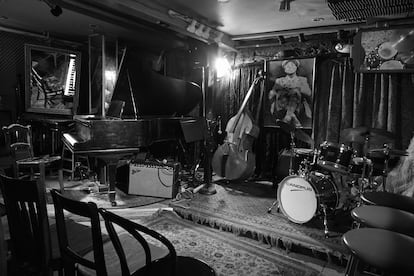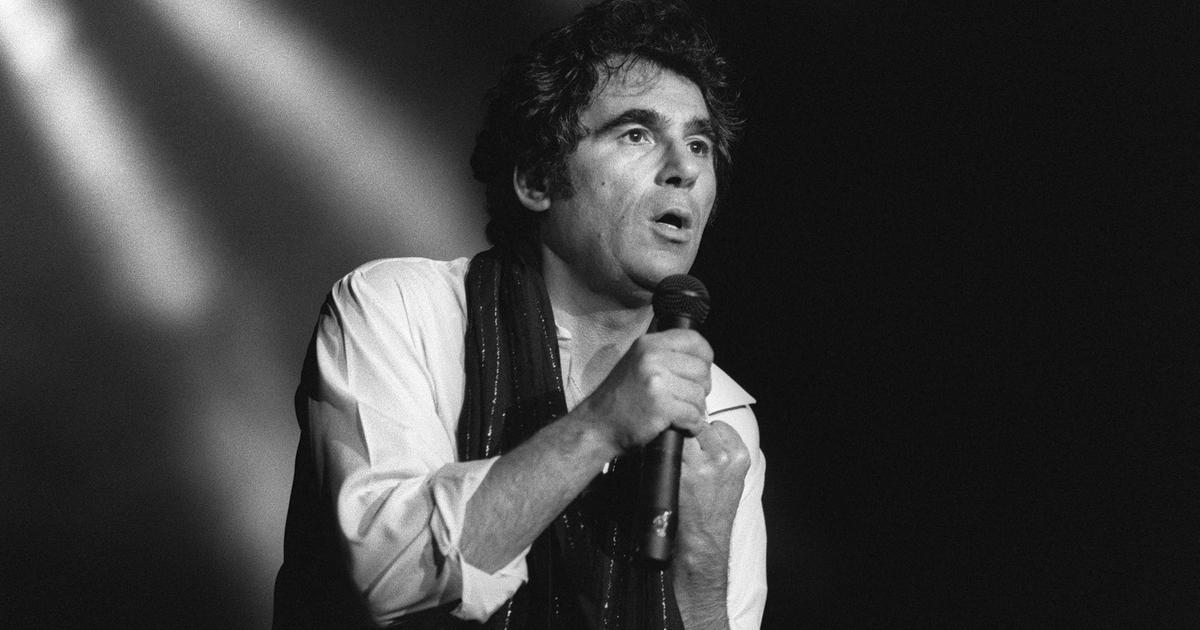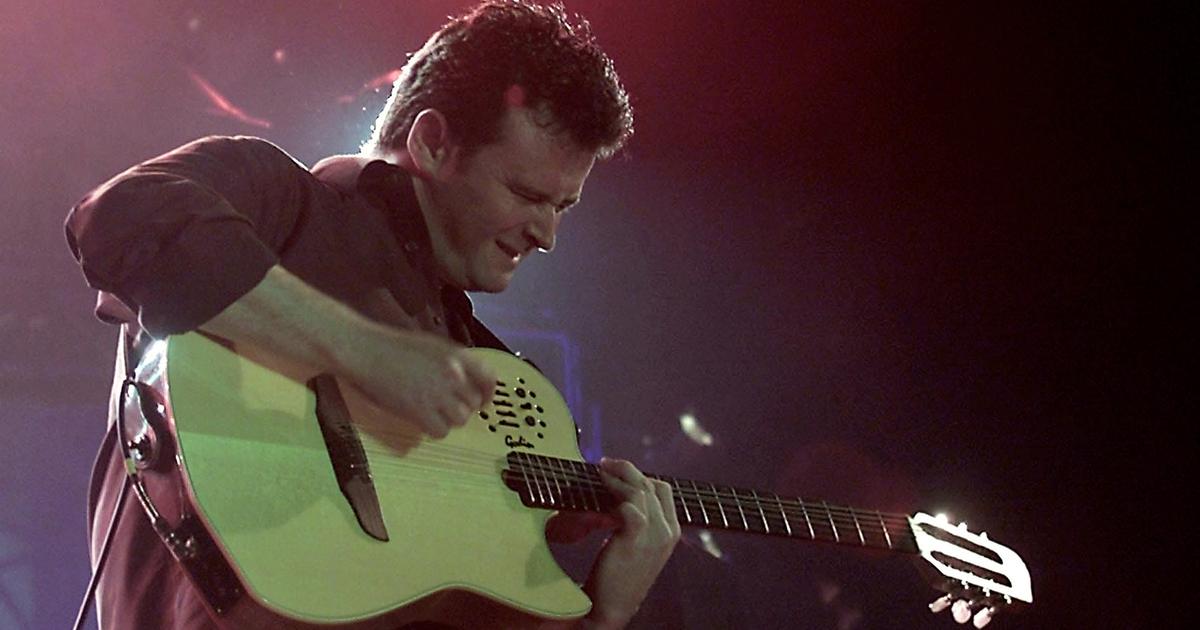The walls of the Village Vanguard, surely the most famous jazz club in the world, have had to listen to everything in its 87 years of life (anniversary that the place celebrated precisely this Tuesday).
What they may have yet to hear was a piano star quoting the US Centers for Disease Control and Prevention (CDC).
It happened recently.
It was Sunday, after the passage of a snow storm.
In the first of the night's two showings, Vijay Iyer, leading his trio, told the crowd that he had to show his vaccination certificate to get in: “My sister works for the CDC.
That's why I suggest you do not remove your mask during the concert.
We will play masked.
Let's take care of each other."
Iyer and double bass player Linda May Han Oh wore double protection.
Drummer Tyshawn Sorey's broke in the middle of one of his volcanic solos.
At the break, Iyer crossed the room looking for Sorey, who was sitting in the back, to provide him with a spare.
The gate of the Village Vanguard club, at the start of the snowstorm that hit New York on January 28. Alexi Rosenfeld (Getty Images)
That's the way it is in the omicron-era jazz capital of the world, which has once again delayed the New York music scene's return to life.
Before the pandemic and with a band of that category, it would not have been easy to get tickets for that concert at the Village Vanguard, with a capacity of about 120 people.
One of the waiters explained that the return trip was costing, "especially due to the lack of foreign tourists."
Sitting at a table, Tom and Bert, two New York fans in their sixties, recounted that it was the first time they had returned to the legendary venue “since this nightmare began”.
“The city is stumbling on its way back to before,” confirmed Bert.
At another table, the pianist from Madrid Marta Sánchez, who has lived for more than a decade in a city on whose scene she has made a name, was more optimistic.
She, who supported herself during the break thanks to her Zoom classes as a teacher at a Brooklyn conservatory and "aid from music associations", has seen the contracts return, as well as the regularity of the weekly concerts .
She has two: at the Barbès and at the Bayeux, both on the other side of the river.
“The pandemic has shown the enormous resilience of performers and venues,” says Nate Chinen, author of the book Playing Changes
(Alpha Decay), about jazz in the 21st century
, in a telephone conversation from Philadelphia .
Chinen, who was a critic for
The New York Times
and now works for the specialized radio station WBGO, considers that the pandemic has been "a productive time for musicians", who have at least had time to work on new material, which he will now see the light.
And he put the case of Immanuel Wilkins, young promise of the saxophone.
At 24, he has already released two albums on the influential Blue Note label, but "hasn't done a proper tour yet," on which he is just embarking.
Sorey, one of the most interesting composers on a scene divided between jazz and contemporary music, confirmed Chinen's suspicions that Sunday in New York, explaining that he had taken the opportunity "to compose more than ever."
As a result of that concentration, this week he premieres in Houston a piece that celebrates the 50th anniversary of the inauguration of the Mark Rothko chapel.
A couple of blocks from the Village Vanguard is the Smalls, which is run by pianist Spike Wilner, who also manages the Mezzrow, two venues as exciting as they are intimate.
Wilner recalled in the Mezzrow's storage room, and before sitting down at the instrument to offer a recital of
standards
in a trio format, that "in November, around Thanksgiving, business was at its peak again."
"People were relaxed," he added.
“We made cash as in other times.
We thought that the reward had finally arrived for having been able to hold out during such an extremely difficult time, the greatest threat we have experienced so far.
Omicron arrived and people who had already been vaccinated and even with booster doses began to get sick.
We all took it.
Ómicron made us stop again, and returned the anxiety to the streets”.
The penultimate variant, although milder, took the Christmas season ahead.
“These are key weeks”, according to Wilner, “it is when you reap what is sown during the rest of the year.
The concerts are packed, the streets are full of tourists, everyone drinks non-stop…”.
The empty stage of the Smalls club in New York.
The odyssey of its premises exemplifies what this scene has suffered.
They closed a few days before the confinement order.
And they were wrong to think that the wait would not be so long.
They rescheduled last April, with a third of capacity.
In September, they could accommodate half the capacity.
Finally, the permit for full occupancy arrived, which they have not yet taken advantage of: they welcome a maximum of 56 people in the Smalls and 40 in the Mezzrow (before, they could hold 70 and 65, respectively) and tickets can only be purchased online, which “has taken away some emotion from the thing”.
They were both the kind of rowdy gambling dens you walked through the door, not caring too much who knocked.
During the pandemic they survived by programming a streaming
concert
daily, as a way to "encourage donations, which came from all over the world."
The Smoke, in upper Manhattan, opened before the Wilner locations because they had an idea...and a sidewalk: on it, they put stove-heated structures that owner Paul Stache calls "little greenhouses."
The bands played inside the venue with all the doors and windows open.
“It wasn't the ideal musical format or sound, but people were so keen that it didn't matter.
So many that sometimes it created a problem for street traffic.”
The experience they acquired during the pandemic, when they started broadcasting recitals online, is helping them to keep the flame alive now that the venue is closed for expansion;
They have taken the adjoining space, because, “even if the virus passes”, Stache does not believe that “the desire to huddle in a tiny joint, as before, will return.”
"At least not during a good season," he adds.
They have also taken the opportunity to record "more than ever" on their label, Smoke Sessions Records.
Saxophonist Donny McCaslin performs as part of the Maria Schneider Orchestra at the Jazz Standard in New York in 2013. Jack Vartoogian (Getty Images)
There were other clubs that were not as lucky with their landlord as Smoke and did not survive the break.
The most sensitive loss has been, without a doubt, that of the Jazz Standard.
It closed in December 2020 due to "the pandemic and so many months without income, as well as a long negotiation on rent that has stalled," they said then.
In New York there are about eighty venues where you can listen to improvised music, according to the list printed each month on the last page of
The New York City Jazz Record newspaper.
There are slums in basements, places with a varied programming, not only jazz, others that are the reincarnation of legendary places (Minton's, Birdland), hotels and restaurants with music, refuges for the experimental in progressive universities (The Stone) and institutional spaces, like Dizzy's, in the Lincoln Center complex.
But the Standard had something special.
Perhaps it was the solvent programming, the fact that you could see it from any table or “the sensational food”, an advantage highlighted by Fred Cohen, owner of the Jazz Record Center, the only store devoted exclusively to the genre in the city.
"The news of that closure was terrible," says Cohen behind the counter of his store, on the eighth floor of a nondescript Chelsea office building.
Wilner is tougher on competition: “The owners [of the Jazz Standard] are in the barbecue business [the venue was in the basement of a restaurant owned by famous businessman Danny Meyer].
The programming, which was led by a guy named Seth Abramson [who did not respond to this newspaper's request for an interview], was great, but as soon as the hotel business failed, the music ended.
Chinen, for his part, warns that there are plans to reopen it soon.
If that were to happen, the Standard would return to a completely different scenario than the one that caused its closure.
77% of New York residents are fully vaccinated.
The worst of omicron is over, coronavirus cases have fallen 62% in the city in the last two weeks, and hospital admissions have been cut in half.
The use of the mask is no longer mandatory in the premises, although it is at the discretion of the owners to demand it.
Yes, it is requested to access most of the interiors to show the complete vaccination card (and there are places that even ask for proof that you have the booster dose).
“What we need,” says Wilner, “is that those demands don't go on forever.
Let people relax, come back to New York and enjoy what we still have left, however little, two years later.
It is still possible to recover our lives.
I worry that that won't happen, because I've realized that I don't love this city I was born in the way I used to love it,” he concludes.
Those wishes may take time to come true.
For many New Yorkers, the good news is still not enough to venture inside, as evidenced by the tables that restaurants spread out on the city's sidewalks, full in the second winter of the pandemic, even when temperatures plummet several Under zero grades.
Subscribe here
to the 'newsletter' of EL PAÍS America and receive all the key information on current affairs in the region.
Exclusive content for subscribers
read without limits
subscribe
I'm already a subscriber






/cloudfront-eu-central-1.images.arcpublishing.com/prisa/H2U67J3DUNAJ7PTX2UNLIVIPEM.jpg)
/cloudfront-eu-central-1.images.arcpublishing.com/prisa/XI7CMCSW3RH5DMG7IBW6NJDCUI.tif)






